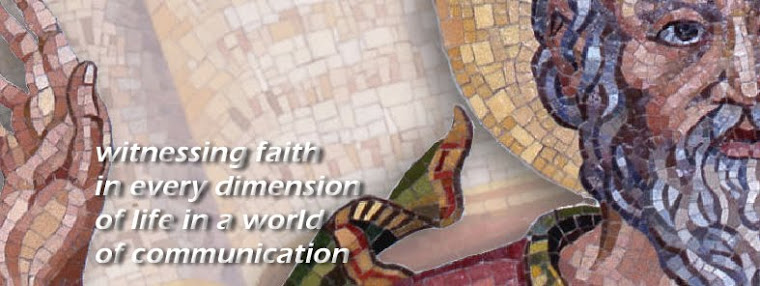This letter was ebargoed (banned) from Priests in China (though with modern means of communication I assume there must be a informal way that it will arrive in the country and reach priests).
VATICAN - Letter from Cardinal Tarcisio Bertone to priests in China for Year for Priests: “despite the persisting difficulties, the information that has come from different parts of China points also to signs of hope.”
Vatican City (Agenzia Fides) – An “invitation to hope” is what opens the Letter that Cardinal Tarcisio Bertone, Secretary of State, has addressed to all priests of the Catholic Church in the People's Republic of China, on the occasion of the Year for Priests. In light of and in continuity with the “Letter of Holy Father Benedict XVI to the Bishops, Priests, Consecrated Persons and Lay Faithful in the People’s Republic of China,” on 27 May 2007, Cardinal Bertone recalls the Pope's indications for the life of the Church in China: reconciliation within the Catholic community and dialogue with Civil Authorities, without renouncing the principles of the Catholic faith. In this sense, he affirms that “despite the persisting difficulties, the information that has come from different parts of China points also to signs of hope.”
To continue on this path, every priest should draw “light and strength from the sources of priestly spirituality, which are the love of God and the unconditional following of Christ.” In China's situation, according to the expression used by Jesuit missionary Fr. Matteo Ricci, “it is still more a time of sowing than of reaping.” The Holy See is fully aware of the complex and difficult situation in which priests in China find themselves and “the new challenges, which the Chinese people must face at the beginning of the Third Millennium,” which require priests to open themselves “with confidence to the future and to continue trying to live the Christian faith integrally.”
As a “little flock,” the priests in China live amidst a great multitude of people, along with followers of other religions, as well as people who are either indifferent or even hostile towards God: “you share the same situation of many of your brothers in other parts of the world,” Cardinal Bertone says, inviting them to place their littleness in the Lord's hands, to thus become “instruments of salvation for many, for everyone!”
After highlighting that “in the school of Saint John Mary Vianney we must learn to identify ourselves with the ministry we have received” and that it is from this identification “that all the virtues necessary for every priest originate,” the Letter indicates the Eucharist as the source where the priest can find the strength to be faithful to his important mission. “The Eucharist, sacrament of communion, source and summit of ecclesial life and evangelization, is at the center of your journey of reconciliation...In fact, every celebration of the Eucharist presupposes the union not only with the local Bishop but also with the Pope, the order of Bishops, all the clergy and the entire People of God.” Likewise, it is necessary that the priest nourish himself with the Word of God, that he know it and love it, so much so that their life and activity is “distinguished by a determined witness to the Gospel.”
Cardinal Bertone then addresses the Bishops, “who have received the fullness of the priesthood,” to recall their duty to care for the path of holiness of their priests. The Year for Priests also offers a good occasion to relaunch vocational pastoral ministry, promoting new initiatives such as days of prayer, encounters for the youth, greater attention in the formation of seminarians on a spiritual and academic level. A particular invitation was also made to Bishops to ensure the adequate permanent formation of the clergy, especially young priests who are also alone, subjected to new pastoral challenges “linked to the demands of the task of evangelizing a society as complex as present-day Chinese society.” The young priests should be welcomed and assisted by the older clergy, and have frequent occasions to meet with them and with the Bishop, so as to plan diocesan activities, share experiences, and help one another to resolve personal and pastoral difficulties.
In the conclusive part of the Letter, there is an invitation to consider the worship of the Eucharist outside the Mass as “of inestimable value in the life of every priest,” according to the teachings of the saintly Cure of Ars, and an exhortation to promote it so that the faithful, gathered around the Eucharist can experience ecclesial communion.
Faced with the contrasts and miseries that remain within the Catholic communities, the Letter asks them “to pay attention also to the human formation of all the faithful, priests and sisters included, because the lack of human maturity, self-control and inner harmony is the most frequent source of misunderstandings, lack of cooperation and conflicts within Catholic communities.”
The final argument addresses the need to promote agencies of communion, according to the ecclesiology of communion that is fundamental in the documents of the II Vatican Council, so as to promote the pastoral task of the Bishops and the growth of the diocesan community. When it is impossible to organize the entire diocesan Curia, Bishops should at least start to diversify the roles by gradually appointing a vicar general, chancellor, procurator, etc, in order to have someone at hand for consultation and cooperation in making juridical and pastoral decisions.
Cardinal Bertone concludes his letter by entrusting the Blessed Virgin Mary with “the wish that your priestly life may be guided more and more by those ideals of the total giving of oneself to Christ and to the Church which inspired the thought and action of the saintly Curé of Ars.” (SL) (Agenzia Fides 16/11/2009)


No comments:
Post a Comment